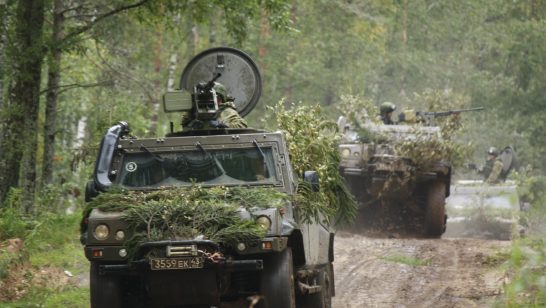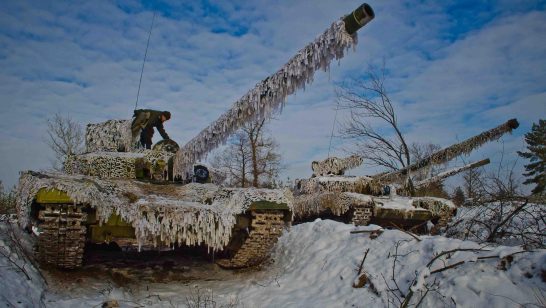
When NATO leaders gather in Warsaw in July, they will do so against a background of uncertainty. Uncertainty about the future of the European project. Uncertainty about the outcome of the US Presidential elections. Finally, uncertainty about how best to tackle the range of security threats facing the Alliance.
The absence of a single unifying threat has been a problem for NATO since the end of the Cold War. US impatience with the failure of their European Allies to contribute more to their own defence has aggravated the situation. Taken together, these two issues pose serious questions for the Alliance.
Citizens of NATO countries and observers will be looking for clarity about how best to confront the twin challenges of Russian assertiveness to the East and the spread of instability on NATO’s southern and south eastern flanks. Meeting these expectations will be tough for an alliance of 28 members with differing perspectives on the relative priority to be attached to the threats they face.
For some, the resurgence of Russian military activism provides an answer. It has coincided with, and been largely responsible for, signs of an upturn, albeit modest and patchy, in European spending on defence. But, if the purpose of the Alliance has been to deter potential adversaries and reassure allies, the re-emergence of threatening Russian behaviour could be said to represent failure.
So, what should the NATO leaders do at Warsaw to shore up confidence in the relevance and effectiveness of the Alliance?
First, they should show that they have fulfilled the commitments made at the Wales Summit in 2014. Setting out how the Allies have made progress against the targets for increased spending on defence will be important. There can be endless debates about whether spending on defence is being used well. Levels of defence spending tell their own story. That said, it will also be important to demonstrate progress in building the new Very High Readiness Joint Task Force and the defence capabilities required in order to reach the NATO Forces 2020 target set out in the Chicago and Wales summit declarations. This should include remedying weaknesses revealed by the NATO operation over Libya in 2011. Processes, such as Smart Defence and Framework Nation, may be useful ways to get more from pledged defence expenditures, but they need to be seen to produce tangible results.
Second, they should further strengthen the NATO presence in Eastern Europe. Logic points towards the establishment of a permanent presence of forces drawn from the major European powers and the US. However, in the absence of consensus that the assurances provided in 1997 against the permanent presence of NATO forces in Eastern Europe no longer hold good, it will be necessary to boost the credibility of the Alliance’s rapid reinforcement plans. Although it would likely be unpopular with some Allies, who will not unreasonably argue that the Eastern Europeans should do more to help themselves, there may be a case for increasing the size of the common funds at NATO’s disposal in order to pump prime the construction of any new infrastructure that is needed and help pay for the cost of exercising the Alliance’s reinforcement plans. Alongside investment in the credibility of NATO’s Article 5 commitment, the Alliance should, as the ELN has argued, ensure that its channels of communication to the political and military leadership of the Russian Federation are up to date and regularly tested.
Third, they should restate the role that nuclear weapons play in the Alliance’s deterrent strategy and initiate more visible exercising of this capability. This is not about sabre rattling, but about credibility of demonstrating that the procedures required for nuclear release are effective. The intention should be to reduce the risk of miscalculation about the Alliance’s resolve, not to abandon the effort to make further progress towards genuine, multilateral disarmament. No doubt the Alliance will record the achievement of initial operational capability of the NATO ballistic missile defence system. But they would be wise to do so in muted tones, given the scope for misinterpretation, willful or otherwise, by Russia.
Fourth, NATO leaders should explain how NATO can help to make its members safer from the threat of Islamist terrorism and instability in the Middle East and North Africa. In doing so, they will need to acknowledge the limited capacity of military power to effect lasting change. In most respects, it is national governments and the EU that will be in the lead in restoring border controls, acting compassionately towards refugees and responding to the genuine concerns of their electorates, while at the same time tackling the causes of alienation from western, liberal, democratic values. While the prospect of early progress towards unblocking arrangements for the use of NATO headquarters and other infrastructure for EU led operations (the “Berlin Plus” arrangements) is slim, the leaders of the Alliance should emphasise the complementary and mutually reinforcing roles that the EU and NATO can and do play, in spite of the many frustrations.
Above all, NATO leaders should demonstrate unity of purpose. This is particularly important at a time when Putin’s Russia is seeking to drive wedges between the Allies and the nerves of the European member states are so exposed over the immigration crisis. This will involve compromise, which will probably mean not spelling out priorities as clearly as outside observers, and defence planners, might wish. That is a price worth paying for the sake of cohesion.
Finally, what role will the UK play at Warsaw? All depends on the outcome of the European Referendum. If the UK votes to remain a member of the EU, the Prime Minister will be in a position to play a positive role, drawing strength from last year’s commitment to spend 2% of GDP on defence in order to encourage others to move in the same direction and helping to bring together Allies with different perspectives on Alliance priorities. If the UK votes to leave, the government will be in such disarray and the mood among European Allies so resentful that it is difficult to see how the UK could wield positive influence at Warsaw.
The opinions articulated above represent the views of the author(s), and do not necessarily reflect the position of the European Leadership Network or any of its members. The ELN’s aim is to encourage debates that will help develop Europe’s capacity to address the pressing foreign, defence, and security policy challenges of our time.



